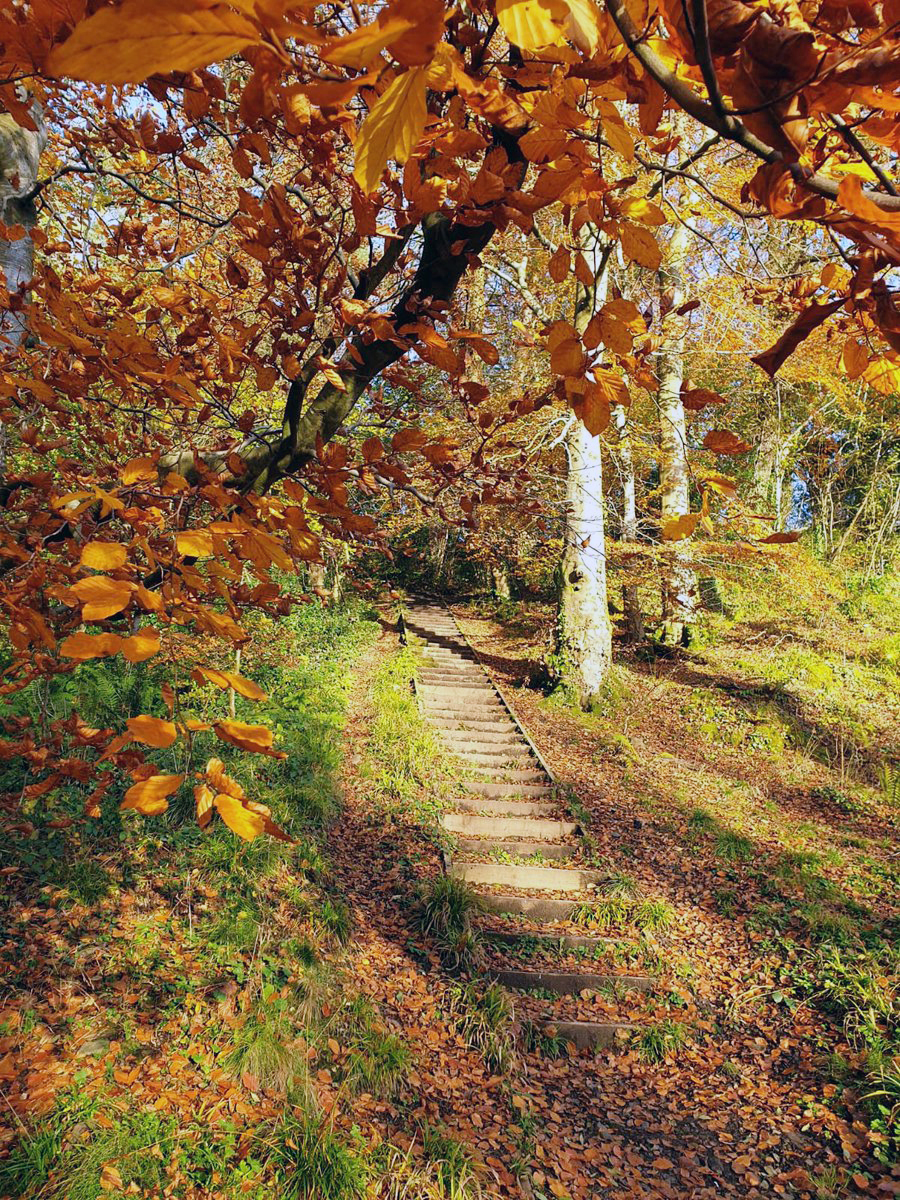THIS picture, taken by Dúlra’s pal Squinter this week, shows Colin Glen in all its autumnal glory. And Squinter wrote on Twitter that after a decade in the teeming streets of the Falls, he remembers walking into the Glen for the first time and thinking he’d arrived in another world.
Dúlra, for his own part, can’t remember exactly the first time he set foot in the glen, but, once discovered, it played a central role in his life.
During the school summer holidays or at weekends we’d set off by foot or on bikes from Andersonstown in the sure knowledge that what lay before was a day packed with adventure. There were treacherous swings from the trees over what seemed to us were deep, deadly ravines – you’d hang on for dear life. On the very hottest days you could jump into one of the deeper pools to cool off. Dúlra loved to just take a sharp left or right at any junction and discover a whole new area that, it seemed, few feet had ever tred.
But Colin Glen wasn’t just a destination, it was a living organism that changed each time you visited. Adults often accuse young people of vandalism, but that was simply impossible in Colin Glen. The worst you could do – even if you were for some reason intent in causing damage – was snap a branch or carve your initials into a tree trunk (often declaring your undying love for someone who would dump you a week later!). The trees were so big and so mature – and the undergrowth like a jungle – that the wildest kids couldn’t do any harm.
This other world that Squinter mentions wasn’t just the trees though, it was the creatures that made their home there. Dúlra’s young eyes exploded on seeing the sheer variety of wildlife.
Once we were fishing on the bank of the upper glen – pretending to fish more like it for all the success we had – when a stoat ran over the rocks beside us. It was the first one Dúlra had ever seen. Another time Dúlra’s Jack Russell terrier disturbed a nest of hornets at the entrance of a badger set, and dog, Dúlra and potential girlfriend all ended up running in terror and howling in pain.
Dúlra soon learned that patience was the key to revealing nature’s secrets. Walk through the glen at normal pace and you’ll see some birds. Take a seat or even lie among the bracken at the water’s edge for 20 minutes, and wildlife will appear as if you’re opening a pop-up nature book.
The Irish dipper’s nest was the easiest riddle to crack – it was always somewhere in the ivy under the main Glen Road bridge. The grey wagtail’s he found only once, along with the treecreeper’s and tiny goldcrest. He spotted a florescent kingfisher and the closest he got to a jay – common today in the glen – was a bright blue feather. Red squirrels were onmipresent – they’ve now been replaced by greys – while an otter winked at Dúlra from the water one day, and he spotted a badger running along a tree trunk that had fallen across the river. You never really knew what to expect in a place that seemed to be always changing.
Then, as a teenager, we graduated to fishing the remote quarry pools behind the glen. The forest acted like a sort of safety barrier for the hinterland on the far side which visitors rarely made it to. Some of the pools had never been fished – and so when we dropped our worms into them, we often hooked massive trout. Then we’d spend the next few months hoping to hook another, but, looking back, the pools were so small that they probably only contained one big fish.
We’d always hang on for the evening rise, where the fish would jump for flies at twilight. But that meant walking back through the glen in darkness. It wasn’t for the faint of heart.
We’d go in single file, with the leader carrying the single touch. You’d fall over stumps and get slapped in the face by branches, while unknown animals scurried away at your feet and bats and owls skimmed your head. It was like a ride on a ghost train. Dúlra was never so happy to make it to the safety of the Glen Road with its streetlights.
Colin Glen is a treasure of West Belfast. The lower glen is more family and visitor-orientated, while the more inaccessible upper glen was always a nature haven par excellence.
As Squinter discovered, it’s a glorious place to visit in autumn, but Dúlra’s favourite time is when snow falls, when all the glen’s secret creatures are revealed by their footsteps. Bring on that white Christmas.






